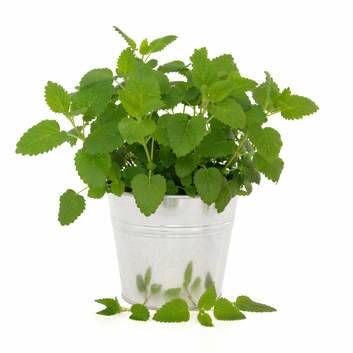According to medieval legend, Lemon Balm (Melissa officinalis) will cure all of the above. Warning: do not rely on this. It is extremely unlikely it will help at all. I suspect most of the "cures for mad dogs" were like the medieval cures offered for the plague: it would be unlikely that the patients would live long enough to blame the medical practitioner when they didn’t work.
Subscribe now for unlimited access.
$0/
(min cost $0)
or signup to continue reading

Lemon balm is a small leafy herb with bright green, slightly tough leaves. It has a fragrant lemon scent - not quite as pure as lemon grass or lemon verbena, or for that matter, lemons, but not too bad - and small, insignificant but sweetly-scented whitish green flowers. A rare cultivar, lime balm, Melissa officinalis cv, is very similar but with deeper green leaves with a rich lime scent instead of lemon.
Lemon balm is easily grown in any spot that is occasionally moist and has dappled sun. It dies back after severe frost but recovers with warm weather and reseeds easily. Too easily - lemon balm can become a weed. Don’t grow it near the bush, or in any bed where you can’t mow down seedlings. Even wallabies don’t seem to like it.
Lemon balm grows easily from seed or large clumps can be divided at any time of the year. You can also take cuttings of new wood from late summer to late spring i.e. now - any snappable piece of lemon balm stalk should take.
Lemon balm leaves can be picked as soon as they are large enough. Even if they don’t help with the bites of mad dogs nor baldness (I’m not sure whether we're supposed to eat the leaves or apply them as a poultice for the latter) they can be made in a vaguely pleasant tea i.e. not as good as lemon verbena, but not bad either.
Sorry not to be more enthusiastic. ‘Not bad’ doesn’t exactly yell ‘go out and plant now.’ But I do get around to making a few pots of lemon balm tea each year, and sometimes use it every decade or so when I decide to make an after dinner liqueur, too. Lemon balm was traditionally used to help mild insomnia, and a relaxant for digestive problems brought on by stress. It was also was one of the ingredients in Carmelite Water, a seventeenth century recipe for longevity based on herbs in white wine. Maybe the ability to relax does help one to a ripe old age. Or possibly, only those who already have a talent for relaxing sit back and sip a small glass of Carmelite Water before bedtime.
Very young lemon balm leaves are delicious in salad sandwiches and a few can be added to give a faint lemon tang to salads. Old leaves are tough, and too many overpower a salad. The older ones can also get a slight camphor-like aftertaste. The younger the leaf, the better the flavour.
Lemon balm flowers are reputedly high in nectar and were planted around English hives to feed the bees. A hive rubbed with lemon balm was reputed never to swarm. (I tried this with a stroppy hive here a few decades ago, but it didn't work. File it with the mad dog and baldness suggestions.)
Lemon balm leaves are, however, delicious crushed in a fruit drink or frozen in ice blocks and added to cold water, pineapple or apple juice or ginger ale on a hot day.
A truly delicious - as in ‘not just OK’ - tea can be brewed from 1 tb of fresh ginger, a handful of young lemon balm leaves, heated till not quite boiling in 4 cups of water.
Drink hot, and with enjoyment, and you will quite probably feel relaxed. Just don’t give the credit to the lemon balm.
This is the week to:
- Rake, and keep raking for the next three months or so. This week there will probably also be shreds of bark and twigs to rake up if you happened to get last week’s heavy rain fall. (Commiserations to those who didn’t).
- Plant proteas for winter flowers. You probably won’t get any this year, or possibly even next year, but each time you look at the growing bush you can dream of the ones to come
- Begin to think about planting onions i.e. get the ground clean of weeds, which tend to grow much faster than onions but do not sate as good, which is why they are known as ‘weeds’
- Mark where the asparagus plants are as they foliage dies, so that no one digs up their productive roots to plant, say, onions
- Pick the persimmons before the birds do, or enjoy the birds if you get there too late
- Place calico fruit bags over late maturing apples like Sturmer Pippins to keep birds, possums and flying foxes from feasting on them before you do

